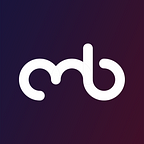Introverted and Extraverted personality preferences at work
Introversion and Extraversion play a big role in workplace communication.
Organizations that can harness differences of personality often find that a more nuanced range of voices and opinions among employees drives better decision-making and more productive collaboration while making sure workers feel motivated and valued.
Leadership, Extraversion and Introversion are the core of the discussion in this episode of The Myers-Briggs Podcast with guest Jeri Bingham (an introverted leader, business expert and host of her own podcast, Hush Loudly.)
Personality preferences
People often view Introversion and Extraversion as a simple representation of how people socialize, but the reality is much more nuanced.
Introversion and Extraversion are different in the way people are energized and what drains their energy and motivation. While those who prefer Introversion might not speak up as often, it doesn’t mean they don’t have ideas, but rather that they take the time to develop their perspective before sharing it.
On the flip side, Extraverted types think best when they can talk through a situation and bounce ideas off each other. Each of these communication styles is beneficial in the workplace, and organizations that create a space for each find greater synergy among their teams.
Working together
Setting expectations for what people need to thrive is crucial. Coworkers need to be on the same page about what each teammate needs to succeed, and how they can support one another.
Brainstorming, for example, is an area where Introversion and Extraversion tend to operate differently.
While Extraverts might want to gather in a room and talk through options, Introverts tend to have their best ideas when they get a chance to think on their own.
Teams can leverage these differences by giving teammates a few days notice before a brainstorming session so they have time to prepare, and by using tools like digital whiteboards so individuals can collaborate without the pressure of a meeting.
Introverted vs. Extraverted leadership
When we think of leadership in the workplace, a typical image comes to mind. The Extraverted leader, with a big personality and even bigger plans.
At its best, this kind of leadership can propel an organization forward. At other times, these quick decisions set the stage for more problems later on.
Introverted leaders typically spend more time planning before voicing their decisions. This increased attention to detail is valuable because it creates a steadier path to success. Still, in some cases, taking too much time to plan can lead to missed opportunities.
Both types of leadership have their share of strengths and blind spots. The most effective leaders understand the differences between these personality preferences and build a culture that has space where everyone can thrive.
In conclusion…
Although most workplaces have a bias towards Extraverted personalities, the most effective teams are those aware of differences and that can strike a balance that allows everyone to succeed.
While snap decisions can help organizations take smart risks, methodical voices can ensure they don’t push the envelope too far.
Although there are no right or wrong answers when it comes to personality in the workplace, teams do best when they have the right mix of perspectives and an environment that can support each.
For a more in-depth look at effective change management in the workplace, check out this conversation with Jeri on The Myers-Briggs Company Podcast.
